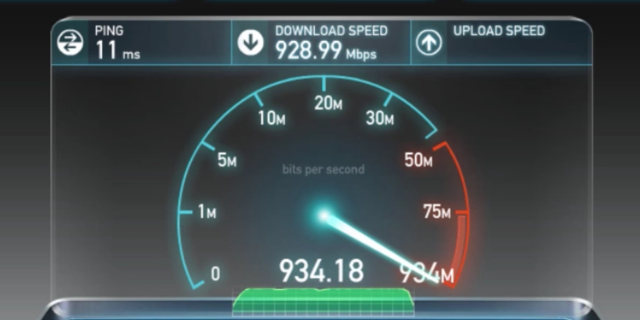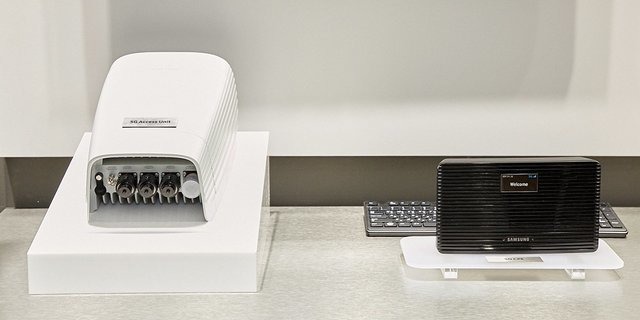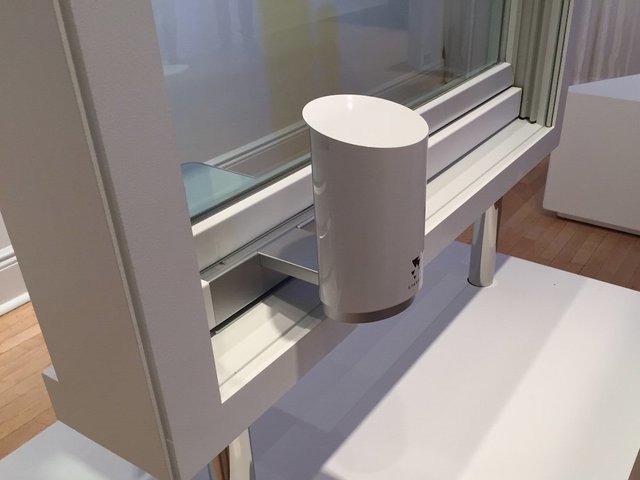AT&T and Verizon's 5G networks are coming this year and your internet speeds will be insanely fast when they arrive
AT&T announced on Wednesday that it'll begin rolling out its 5G network later this year.That now makes for two major telecommunication companies in the US that will offer 5G networks in 2018, as Verizon announced in late 2017 that it'll also be rolling out its 5G network in late 2018.
Verizon and AT&T haven't explicitly stated the speeds we can expect when their 5G networks arrive, but we do know that 5G will be much faster the current 4G LTE mobile networks we have today. And it even has the potential to be faster than wired internet connections, too.
When the 5G wireless standard hits the mainstream, our mobile and home internet speeds have the potential to be so fast that we'll be downloading 4K movies, games, apps, and any other large form of content at a fraction of the time we're used to.
How fast will 5G be?
At Mobile World Congress 2017, Samsung showcased its 5G Home Routers, which achieved speeds of up to 4 gigabits-per-second (Gbps), according to PCMag. That's 500 megabytes-per-second, which could let you download a 50GB game in under two minutes, or a 100GB 4K movie in under four minutes.
To give you an idea of how fast that is, the average internet speed in the US as of 2016 is 55 megabits-per-second, which translates to a woeful 6.5 megabytes-per-second.
As PCMag's Sascha Segan points out, however, Samsung's router was right next to the transmitting 5G cell at the time of the demonstration. That means those speeds are probably only possible in a perfect scenario, where the 5G router is extremely close to the 5G radio cell without any interference, obstacles, or network congestion.
It's unlikely we'll get "full" 5G speeds all the time.
 |
| Still, even with 50% of that performance, we could be experiencing 2Gbps speeds at home. And even 1Gbps — 25% of the perfect scenario — would be great compared the US internet speed average. |
Gigabit internet speeds aren't new, but they're extremely rare to come by. There are just a handful of ISPs that offer gigabit internet in just a few parts of the US, largely because it's incredibly expensive to lay down infrastructure. It involves digging up roads to install miles of fiber-optic cables and connecting them to your specific address.
5G will face fewer obstacles than wired internet, thus making it easier to distribute super fast internet.
The best part about wireless 5G millimeter waves is that ISPs don't have to build costly infrastructure to deliver those insanely fast speeds. Instead, your internet service will be delivered wirelessly through the air, much like your mobile network for your phone. Any company would gladly deliver better services if there's an easier, cheaper way to deliver them.How does it work?
Samsung's 5G Home Router will use an antenna installed outside of one of your home's windows, which is connected to a WiFi router inside your home. That antenna will pick up one of 5G's "millimeter wave" wireless signals that are transmitted from millimeter-wave cell towers.We've actually seen this technology before from a startup called Starry, which is currently in the testing phase in Boston.
Hurry up and wait.
You can't buy it yet, but the technology is here, and now it's a matter of when this 5G technology will become mainstream.
We're essentially waiting for ISPs to begin rolling out 5G. At the moment, Verizon and AT&T have both announced that they'll roll out 5G wireless internet later this year.
So far, no smartphones support 5G because there aren't any mainstream 5G networks to connect to. Once 5G networks begin rolling out later this year, we'll surely see smartphones with 5G support.
As for home internet, there's no indication of how much 5G routers and other equipment will cost, or how much those internet plans will cost. You can get a 500Mbps plan from Verizon Fios at the moment, but that costs $275 per month.
Here's hoping gigabit 5G internet will be cheaper.




